What are Dehumidifiers
Dehumidifiers are appliances designed to remove excess moisture from the air, promoting a healthier, more comfortable indoor environment and protecting buildings and possessions from damp-related damage. These devices are crucial for areas where high humidity levels can lead to the growth of mold, mildew, and dust mites, which can cause health issues like allergies and respiratory problems. They are beneficial in both residential spaces, such as homes and apartments, and commercial settings, including offices, warehouses, and industrial facilities.
The fundamental principle behind dehumidifiers involves drawing in humid air and passing it over a refrigerated coil. As the air cools, the moisture in it condenses onto the coil and is collected into a removable water tank or drained away. Some models use desiccants—a material that naturally absorbs water—to attract moisture from the air. These are especially useful in environments where lower temperatures make refrigerant-based dehumidification less effective.
Most dehumidifiers come equipped with a humidistat, which allows users to set the desired humidity level. When the air exceeds this level, the dehumidifier automatically switches on to reduce moisture content. Modern units may also include features like LED displays, auto-restart functions after power outages, washable air filters for improved air quality, and even smart capabilities that allow remote control via mobile devices.
Types of Dehumidifiers
Dehumidifiers come in various types to suit different needs and environments:
Refrigerant Dehumidifiers: These are the most common type and work by drawing moist air over a cold coil which causes condensation. They are particularly effective in warm, humid conditions and are commonly used in residential settings like basements and bathrooms.
Desiccant Dehumidifiers: Unlike refrigerant models, desiccant dehumidifiers do not rely on cooling to remove moisture. Instead, they use a desiccant material that absorbs moisture from the air. This makes them suitable for cooler climates or places with consistent temperature fluctuations.
Whole-House Dehumidifiers: Designed for larger spaces or integrated with HVAC systems to control humidity throughout an entire home or building. They offer a more comprehensive solution compared to portable models.
Industrial Dehumidifiers: Built for demanding environments such as manufacturing plants or large-scale storage facilities. These units have higher capacities and are designed for areas that require rigorous moisture management.
Portable Dehumidifiers: These smaller units are ideal for targeting specific areas within a home or office. They are easy to move around and can be utilized wherever localized dehumidification is needed.
How to Choose Dehumidifiers
Selecting the right dehumidifier requires understanding your specific needs in terms of space size, humidity levels, and application. For businesses looking to purchase dehumidifiers:
Capacity: Consider the size of the space you need to dehumidify. Larger areas will require units with higher capacity ratings (measured in pints of moisture removed per day).
Application: Identify the intended use—whether it's for general comfort in an office space or critical moisture control in industrial processes like food processing or chemical manufacturing.
Features: Look for features that align with operational needs such as adjustable humidistats for precise control, automatic shut-off functions for safety, energy-saving modes for reduced operational costs, and easy maintenance options like washable filters or direct drain connections.
Power Source: Ensure compatibility with available power sources—whether standard electrical outlets or alternative options like battery or solar power for remote applications.
Durability: For commercial and industrial applications, prioritize robust construction with durable materials that can withstand harsher conditions.
Best Dehumidifiers on Alibaba.com
Alibaba.com offers a diverse selection of dehumidifiers suited for both commercial enterprises and resale purposes. With products listed from various suppliers across the globe, buyers can find units tailored to specific industry requirements—be it for hospitality settings or heavy-duty applications like construction sites or large-scale manufacturing plants.
One of Alibaba.com's strengths lies in its ability to connect buyers with suppliers who offer customizable solutions. Whether you need a compact portable unit with smart controls or an industrial-grade system designed for extensive area coverage, Alibaba.com facilitates these sourcing needs. The platform's user-friendly interface enables buyers to filter products based on key attributes such as power source, core components, applicable industries, and even local service locations to find the most suitable match.
Moreover, Alibaba.com is committed to fostering secure transactions through services like Trade Assurance, ensuring that payments are protected until orders are fulfilled satisfactorily. With its vast array of options and dedicated customer service features, Alibaba.com empowers businesses worldwide to maintain optimal air quality with reliable dehumidification solutions.
Common FAQs for Dehumidifiers
What capacity dehumidifier do I need for my commercial space?
The capacity required for your commercial space depends on the size of the area and the level of humidity. Larger spaces with higher humidity levels will need a dehumidifier with a higher pint-per-day removal rate.
How do I determine the right type of dehumidifier for my industry?
Consider the environment and conditions of your industry. For example, desiccant dehumidifiers are preferred for cooler climates, while refrigerant dehumidifiers are ideal for warmer, humid conditions. Industrial settings may require heavy-duty units with higher moisture removal capacities.
Are there energy-efficient dehumidifiers available for commercial use?
Yes, there are energy-efficient models available that are designed to use less electricity while still effectively controlling humidity levels. Look for units with Energy Star ratings or those with energy-saving modes.
Can dehumidifiers be used to prevent mold in manufacturing plants?
Dehumidifiers can significantly reduce the potential for mold growth in manufacturing plants by maintaining lower humidity levels, which are less conducive to mold proliferation.
What features should I look for in a commercial dehumidifier?
Key features to consider include a robust construction for durability, a high-capacity water tank or direct drain option to minimize maintenance, and adjustable humidistat controls for precise humidity management.
Do portable dehumidifiers work as well as installed systems?
Portable dehumidifiers can be very effective and offer the advantage of targeting specific areas. However, installed systems may provide a more comprehensive solution for whole-building humidity control.
How often should the water tank be emptied in a portable dehumidifier?
The frequency of emptying the water tank depends on the unit's capacity, the size of the water tank, and the level of humidity. Some models feature automatic shut-off when full and can be connected to a drain for continuous operation.
Is it possible to control a dehumidifier remotely?
Many modern dehumidifiers come with smart features that allow remote control through mobile apps or other devices, enabling convenient monitoring and adjustments.
What maintenance is required for commercial dehumidifiers?
Routine maintenance typically includes cleaning or replacing air filters, emptying and cleaning the water tank, and occasionally cleaning the coils and sensors according to the manufacturer's guidelines.
Can I use a dehumidifier in an area with high levels of dust or particulates?
Dehumidifiers can be used in dusty environments but may require more frequent filter cleaning or replacement to ensure efficient operation.
Are there dehumidifiers that also purify the air?
Yes, some dehumidifiers come with built-in air purifying functions that help to remove dust, pollen, and other airborne particles while also controlling humidity.
What safety features should I look for in a commercial dehumidifier?
Important safety features include automatic shut-off when the water tank is full, automatic restart after a power outage, and overheat protection mechanisms.
Can I connect a hose to my dehumidifier for continuous draining?
Many dehumidifiers offer an external drain connect feature which allows you to attach a hose and divert water directly into a drain, preventing the need for manual emptying of the tank.
How does ambient temperature affect dehumidifier performance?
The effectiveness of refrigerant-based dehumidifiers can decrease in cooler temperatures, while desiccant models maintain performance regardless of temperature changes. Consider your ambient temperature when choosing a dehumidifier.
What is an automatic defrost feature on a dehumidifier?
An automatic defrost feature prevents ice from forming on the cooling coils of the dehumidifier, which can occur when operating in cooler temperatures. This helps maintain continuous operation without manual defrosting.



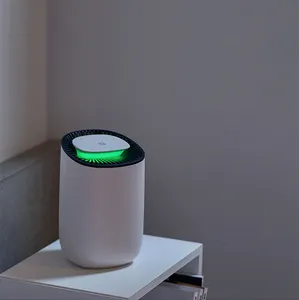


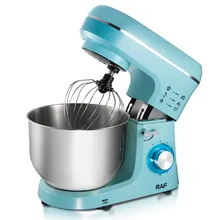
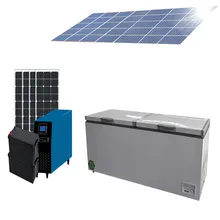
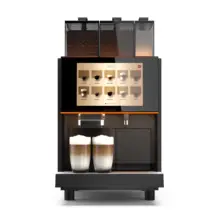


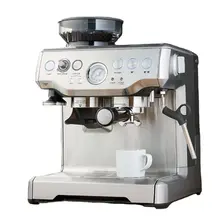







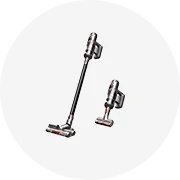



















 浙公网安备 33010002000092号
浙公网安备 33010002000092号 浙B2-20120091-4
浙B2-20120091-4